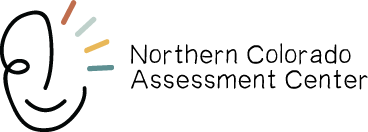October is Attention-Deficit Hyperactivity Disorder (ADHD) Awareness Month. Many people think they know what ADHD is. When they hear ADHD, they imagine hyperactive kids or their friend who can’t seem to stay on the same topic for more than a few seconds in a conversation. These types of behaviors may be indicative of ADHD, but it’s actually a complex disorder that impacts people in a variety of ways. There are many ways to celebrate ADHD Awareness Month, but one of the best things you can do is educate yourself about what ADHD really is and how it impacts people. In this blog, we’ll talk a little about ADHD and how anyone can support members of this community during ADHD Awareness Month and all year round.
What Is ADHD?
ADHD is a very common neurodevelopmental condition. Neurodevelopmental sounds complicated, but it just means ADHD occurs as a difference in the brain’s development. Many people are first diagnosed with this condition in childhood, but though they often develop coping skills to minimize the impact of ADHD, it continues into adulthood.
How Does ADHD Impact People?
You may have heard ADHD referred to as ADD or hyperactivity in the past. Today, we understand that neurodiversity associated with ADHD can present itself in a whole range of ways, including:
- Inattention
- Hyperactivity
- Impulsivity
- Poor planning
- Difficulty remembering details
- Carelessness
- Forgetfulness
- Restlessness
- Poor self-control
- Selfishness (won’t share or take turns)
- Talkativeness
- Struggle to get along with others
- Daydreaming
Are There Different Kinds of ADHD?
When it’s helpful to support the individual with ADHD, clinicians may talk about ADHD that is predominantly inattentive, predominantly hyperactive and impulsive, or combined. If this will help the individual get resources or better understand their own abilities, discussing types of ADHD may be advantageous. However, we typically like to look more specifically at how an individual experiences the effects of ADHD rather than applying broad categories that may be an imperfect fit for the individual.
What Is the Role of Awareness Months in Supporting People with ADHD?
We’re going to talk a bit more in-depth about this issue in a forthcoming blog, but it’s essential that people outside the neurodiverse community know how important it is to continue doing the work to better understand conditions like ADHD and how they impact people. The more we understand, the better able we are to support them in ways that they want and need, diminish voices that are stigmatizing or misrepresenting ADHD, and promote the voices of those within the neurodiverse community.
Is Assessment & Diagnosis Necessary for ADHD?
Because ADHD impacts each person so differently, assessment is an essential resource to help people with ADHD understand their individual strengths and areas of struggle. If you’ve experienced some symptoms of ADHD or know someone who has, it may be time to consider scheduling an assessment. At the Northern Colorado Assessment Center, we’re happy to offer ADHD assessment for children and adults.









